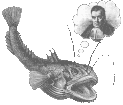UW Aquatic & Fishery Sciences Quantitative Seminar
Adrian Stier
NOAA Northwest Fisheries Science Center
Differences in perception not (necessarily) values produce conservation conflict
Abstract
Conflict among agencies, NGOs, and industry can impede successful implementation of conservation and management objectives. Environmental conflict typically emerges from stakeholders groups that (1) differ in values, (2) vary in levels of trust of one another or in management agencies, and/or (3) have different perceptions of how changes in management strategy will affect ecosystem services. Here we describe how variation in perceived ecosystem structure among scientific experts from different backgrounds provides insight into conflict surrounding the pacific herring fishery in British Columbia. Instead of a typical approach that assumes conflict originates from individuals who come from different backgrounds, we offer an alternative strategy that first evaluates how each individual perceives the ecosystem and then clusters individuals based on how their system responds to simulated management strategies. Our approach demonstrates that background characteristics poorly predict variable perceptions. Instead individuality drives variation in perceived ecosystem structure and function. Some management scenarios exhibit limited evidence for polarized opinions, but divergent groups emerge when it comes to herring. Our findings demonstrate that individuality instead of background characteristics underlies variation in perceived food web structure, and that alignment of experts based on shared experiences poorly predicts how experts perceive herring-centric food webs recovery following collapse.

